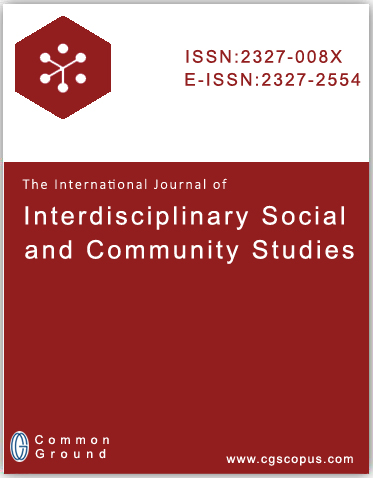Escalating Israel-Palestine Hostilities: Implications for Saudi Arabia, Iran, and the Wider Arab World
DOI:
https://doi.org/10.18848/z80grr22Abstract
The recent escalation in the longstanding conflict between Israel and Palestine has highlighted several significant shifts in the political dynamics of West Asia. The Arab world, once a strong advocate for Palestinian statehood—engaging in three wars with Israel—has recently demonstrated waning support. The issue of Palestine statehood no longer elicits the same response from the Arab world as it did until the 1970s. The Arab world, influenced by the power politics, perceives its involvement in the conflict as less required. Instead, it prioritizes industrial modernization, trying to reduce dependence on hydrocarbons and focusing on advanced technologies. The Arab states believe that the comprehensive development of the region will occur only when there is peace and their active participation in the Israel-Palestine conflict is likely to impact that prospect in the region. Additionally, it sees conflict between Iran and Israel, as an opportunity to degrade Iran and its Axis of resistance, a scenario which would increase the Arab state’s geostrategic significance in the area. However, the Arab world's disengagement from the Palestinian cause has left the void in the Arab leadership. Iran, which too has the aspirations of Muslim leadership, has stepped in trying to fill the gap left by the Arab world. Iran has emerged as the strong voice of the Palestinian at the global level, giving it reasonable popularity among both Shia and Sunni Muslim countries. Moreover, Iran's economic, military, geographic, and demographic characteristics position it as a formidable Muslim country in the region, further heightening the Arab states’s insecurities. Therefore, they believe that the Arab world may benefit from the weakening of Iran and its proxies. However, this notion doesn't appear to be entirely accurate. Because the collapse or weakening of Iran means the complete domination of Israel in the region, and given the fundamental differences between Israel's and the Arab world's regional interests, such an outcome would further hinder the prospects of peaceful coexistence between Arab states and Israel. This study concludes that lasting peace and prosperity in the region can only be achieved by upholding international law and strengthening multilateral institutions, rather than focusing on Iran’s decline. In this research paper a mixed-methods approach was employed, combining qualitative, quantitative, and descriptive research methodologies.










